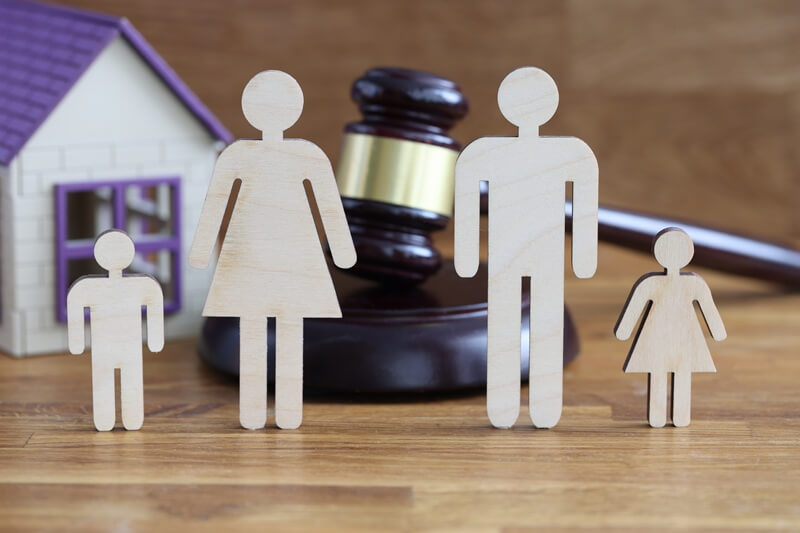How Does Virginia Investigate & Prosecute Rape Charges?
How Does Virginia Investigate & Prosecute Rape Charges?
Rape charges in Virginia carry immense weight, and anyone facing such accusations must fully understand the legal landscape. Knowing how the court investigates and prosecutes the crime helps you make informed decisions. A defense attorney knowledgeable about these nuances can make a difference in the outcome of your case.
This article will guide you on how Virginia handles severe crimes like rape. Here, you’ll see how the state prosecutes and investigates such an offense. You will also learn the valuable role of defense attorneys in helping the accused achieve a positive outcome.

What Is Rape In Arlington?
Rape is a severe criminal offense, both legally and morally, governed by strict legal standards carrying penalties. The state defines the charge and sets out specific circumstances under which an individual can be charged. Accused individuals must understand the legal framework surrounding the charges to navigate it effectively.
Key Elements
Under the Virginia Code, the charge refers to engaging in sexual intercourse with another individual against their will. It also includes causing them to do the sexual act with someone else under certain conditions. The statute outlines vital elements that qualify as rape, including:
- Sexual intercourse is achieved through force, threat, or intimidation against the victim or someone else.
- When the victim cannot consent due to mental incapacity or physical helplessness, such as being unconscious or restrained.
- Any sexual intercourse with a victim under the age of 13, regardless of the victim’s ability to consent.
These elements establish the critical factors of the charge and determine whether the crime has occurred. Understanding these complexities is vital, as they can be used in defense or leveraged against the defendant.
Penalties For A Conviction
The penalties differ based on the circumstances, but they are generally harsh to reflect the gravity of the crime. If convicted, offenders may face imprisonment for a minimum of five years and potentially life in prison. In some instances, the court may decide the length of the sentence based on these specifics:
- If the victim is under 13, the sentence includes a mandatory 25-year minimum.
- If the offender is 18 or older, life imprisonment is mandatory for certain offenses involving minors.
- Convicted offenders serve mandatory consecutive sentences for multiple related offenses, extending their imprisonment term.
- The court may suspend the sentence for offenders who complete required counseling, particularly in spousal rape cases.
- Juveniles under age 12 are presumed to lack the physical capacity to commit rape under certain circumstances.
These penalties highlight how serious rape can be under Virginia law. Further, it can lead to long-term consequences beyond fines and jail time. A conviction negatively impacts your relationships, reputation, and future opportunities.
With this in mind, it’s essential to understand how courts investigate and prosecute to ensure you are not wrongly convicted. Knowing their process protects your rights, helps identify potential defenses, and allows you to make informed decisions.
How Does Virginia Investigate The Crime?
The investigation process begins immediately once an accusation is made. Law enforcement agencies, including local police and forensic professionals, gather and assess evidence. The goal is to determine if there’s enough information to charge someone with a crime.
Initial Report & Victim Statement
The investigation begins with the victim’s report to the police. A thorough statement is taken detailing the events surrounding the alleged crime. An officer will then ask questions about the location, time, and nature of the assault.
Reviewing & Gathering Evidence
Law enforcement will work to collect physical evidence. This could include clothing, DNA samples, or photographs of injuries sustained by the victim. If the victim undergoes a forensic examination, commonly known as a rape kit, it’s sent to a lab for DNA analysis.
Investigators also examine text messages, social media, and phone records for supporting or conflicting evidence. Additionally, witness statements help clarify the timeline and can either corroborate or challenge the victim’s account.
Consulting The Prosecutor
The case is then presented to the prosecutor. They will evaluate the evidence and decide whether to pursue formal charges. If the prosecutor believes there is enough evidence to prove the case beyond a reasonable doubt, they proceed with the charge.
Understanding how the investigation unfolds is essential for protecting your rights. Moreover, following due process ensures you are adequately treated throughout the case. You can navigate the process more effectively and protect your interests by knowing the step-by-step stages.
What Are The Key Steps To Prosecuting Rape?
Prosecuting a rape case involves a detailed and rigorous process. From the initial investigation to sentencing, key steps must be followed to determine whether the accused will face charges. Offenders must understand these nuances, as each phase significantly shapes the case’s outcome.
Initial Report & Victim Statement
The investigation starts with the victim’s report to the police. A detailed statement about the incident is taken. Officers ask about the time, location, and nature of the assault. They also inquire about witnesses and supporting evidence, such as physical items or electronic communications.
Charges & Prosecution
After reviewing the investigation, the prosecutor decides whether to file charges. They evaluate the strength of the evidence before deciding. This includes the victim’s testimony, forensic findings, and conflicting statements. If it is sufficient, they move forward with formal charges.
Pre-Trial Proceedings
Before trial, the court holds several pre-trial proceedings, where the defendant is arraigned and enters a plea. The defense may file motions to dismiss charges or suppress evidence. Both sides exchange evidence through discovery, and plea negotiations may occur before trial.
Trial
Both parties present their sides to the judge or jury during the trial. The prosecution must prove the defendant’s guilt beyond a reasonable doubt. They present witness testimony, physical evidence, and professional analysis. Further, the defense challenges the evidence and tries to create doubt.
Sentencing
If the court convicts the defendant, they proceed to sentencing. The judge considers factors like the crime’s severity. They also review any aggravating or mitigating circumstances. Then, the judge imposes a sentence ranging from a minimum of five years to life imprisonment.
Considering the heavy consequences, it’s important to note the key factors prosecutors consider when deciding. With proper knowledge, you can better understand how the legal process works and navigate it more effectively.
What Are The Factors That Influence The Prosecution?
In rare cases, several factors influence how the prosecution moves forward. Considerations help the prosecution determine the strength of the case and whether it should proceed to trial. Each case is unique, and they weigh various elements to decide the right course of action.
Victim’s Credibility
The credibility of the victim is central to any rape trial. The prosecution will rely heavily on the victim’s testimony. Inconsistencies or changes in their story can raise questions about the veracity of their allegations. Further, if their testimony doesn’t match physical evidence or other witness accounts, it could weaken the prosecution’s case.
Evidence & Testimonies
Forensic evidence plays a significant role, as does witness testimony. The prosecution’s case strengthens if physical evidence, such as DNA, supports the victim’s account. However, if gaps provide conflicting statements, the defense can exploit these inconsistencies.
Prior Sexual History
In Virginia, the law limits how much a victim’s prior sexual history can be used in court. However, the defense may seek to introduce evidence if it’s relevant to the case. It can include demonstrating that the victim has made false allegations.
A criminal attorney understands these factors and how they can impact the prosecution’s case. They can help you navigate these complexities by challenging inconsistencies, questioning evidence, and protecting your rights. Hiring a well-versed defense lawyer in this area positively impacts the outcome of your case.
What Are The Benefits Of Hiring A Criminal Defense Attorney?
A criminal defense attorney provides the experience and knowledge needed to navigate the complexities of the legal system. They can guide you through the intricacies of the investigation and ensure your rights are protected. Further, they can help craft a defense strategy tailored to your case, improving your chances of success.
Comprehensive Case Assessment
An experienced attorney will evaluate every aspect of the case, including the victim’s credibility and the evidence’s strength. They will look for weaknesses in the prosecution’s case and create a strategy that maximizes the chances of a favorable outcome.
Challenging The Evidence
Lawyers are trained to challenge the evidence presented by the prosecution. This includes questioning the validity of forensic evidence, undermining witness testimony, and exposing inconsistencies in the victim’s account. Challenging the prosecution’s case is one of the most effective ways to fight the charges.
Negotiating Plea Deals
Sometimes, a plea deal may be in the interest of the defendant. An experienced criminal attorney can negotiate with the prosecution to secure a less harsh sentence or lesser charges. While this is not always possible, it can be viable if the evidence against the defendant is strong.
To utilize these benefits, thoroughly evaluate your options when hiring an attorney. Selecting the proper counsel is crucial to your case’s outcome. Consider their experience, track record, and ability to understand the specifics of your case. A strong legal advocate can profoundly impact your case.
How Can The Irving Law Firm Defend You?

At The Irving Law Firm, we understand how Virginia investigates and prosecutes rape charges. Our attorneys are familiar with the entire process, from when the police are called to the eventual court proceedings. We use our knowledge of Virginia law to guide our clients through this challenging time.
Moreover, we take the time to review every detail of the case, ensuring that all evidence is thoroughly examined. Our attorneys know what to look for in forensic reports, witness testimony, and victim statements. We are prepared to challenge any inconsistencies or weaknesses in the prosecution’s case.
We advocate for you from the initial investigation to the trial at every stage. At The Irving Law Firm, we are committed to protecting your rights and ensuring that your case is handled with the utmost care and attention. Contact us today for a consultation, and we’ll fight for your rights.
Summary
In Virginia, rape charges carry severe legal consequences. The process begins with a thorough investigation, gathering evidence, victim statements, and witness testimonies. Law enforcement and forensic professionals analyze physical evidence, like DNA, to support or challenge allegations.
After reviewing the evidence, the prosecutor decides to proceed with the charges. Having an experienced defense attorney is crucial to protecting your rights. At The Irving Law Firm, we understand these nuances and can help you navigate the complexities of the investigation and prosecution process effectively.




